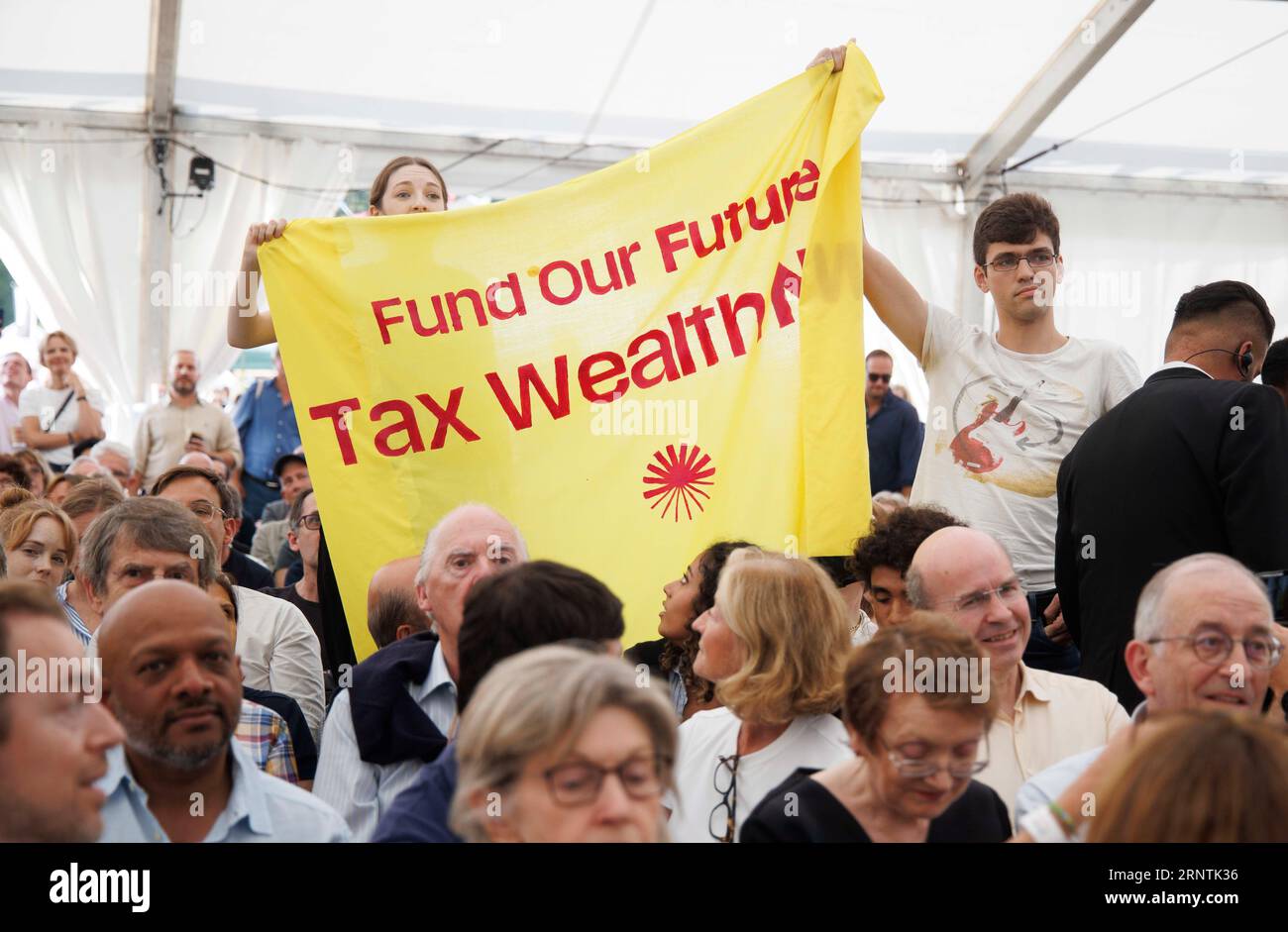Chancellor Rachel Reeves finds herself at the center of a heated debate with her predecessor, Anneliese Dodds, over the consideration of a wealth tax in the upcoming budget. The call for a wealth tax comes as the government faces financial constraints and tough decisions lie ahead.
Anneliese Dodds, who briefly held the position of shadow chancellor before being replaced by Reeves, has been vocal about exploring wealth taxes as a potential solution to boost government revenue. In an interview with Sky News political editor Beth Rigby, Dodds emphasized the importance of evaluating various taxation strategies to support economic growth.
Expert Insights:
Renowned economist Dr. Emily White sheds light on the significance of wealth taxes in modern economies: “Wealth taxes can play a crucial role in addressing income inequality and ensuring that those who have accumulated substantial assets contribute their fair share to society’s development.”
Reeves, on the other hand, has emphasized the priority of stimulating economic growth through increased investment and job creation. While acknowledging Dodds’ input on tax considerations, Reeves stressed that decisions regarding taxation would be made within the framework of budgetary planning.
In response to queries about Dodds’ proposals, Reeves stated, “Decisions around tax are made at a budget… our government’s priority is to grow the economy.” This stance reflects Reeves’ commitment to attracting investments and fostering favorable conditions for businesses within Britain.
In-Depth Analysis:
Political analyst Mark Thompson provides insights into the strategic implications of introducing a wealth tax: “Implementing a wealth tax requires careful navigation due to its potential impacts on investment flows and economic competitiveness. Policymakers must strike a delicate balance between revenue generation and maintaining an attractive business environment.”
The debate surrounding wealth taxation intensifies against the backdrop of fiscal challenges facing the UK government. With limited flexibility in altering existing fiscal policies, Reeves faces pressure to explore new avenues for revenue generation while fostering economic stability.
As discussions evolve within political circles, contrasting opinions emerge regarding taxation strategies. Business Secretary Jonathan Reynolds dismissed notions of a wealth tax as “daft,” underscoring divergent perspectives within governmental ranks on tackling financial constraints.
Amidst these deliberations, Deputy Prime Minister Angela Rayner has reportedly expressed support for heightened taxation measures including revisiting pension lifetime allowances and adjusting corporation tax rates for banks. These proposed measures reflect varying approaches aimed at bolstering government revenues amidst economic uncertainties.
Key Considerations:
To comprehend the essence of current debates on fiscal policies like wealth taxation requires an understanding of their implications beyond immediate revenue generation objectives. The intricate interplay between policy decisions and socio-economic outcomes underscores the complexity inherent in crafting effective financial strategies.
Against this backdrop, Chancellor Rachel Reeves navigates through diverging viewpoints while striving to chart a course that balances economic growth imperatives with fiscal prudence. As debates unfold leading up to budget deliberations, stakeholders await with bated breath to witness how these discussions will shape future policy directions.

Comments